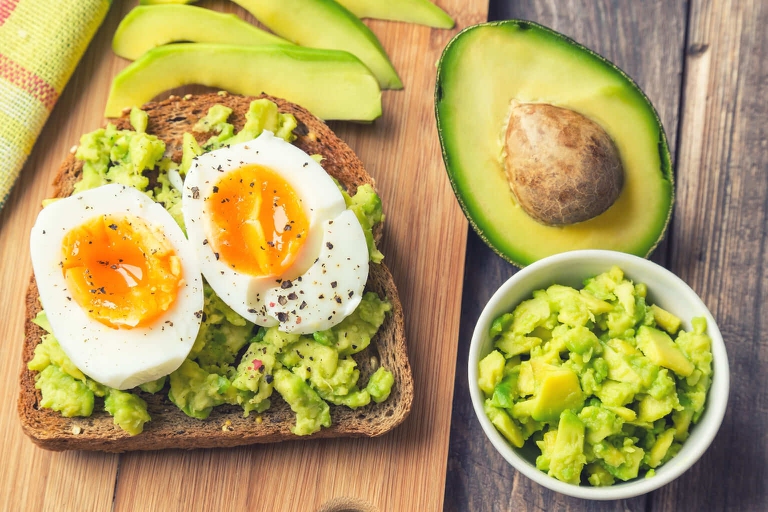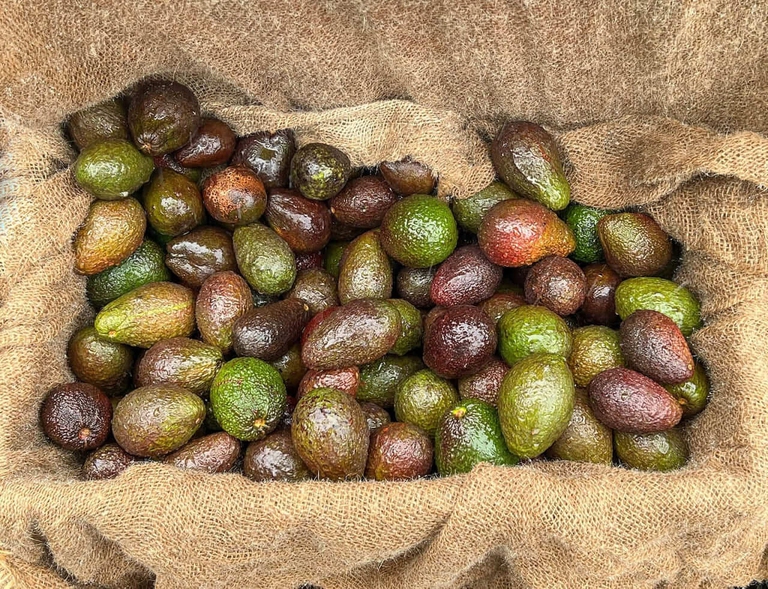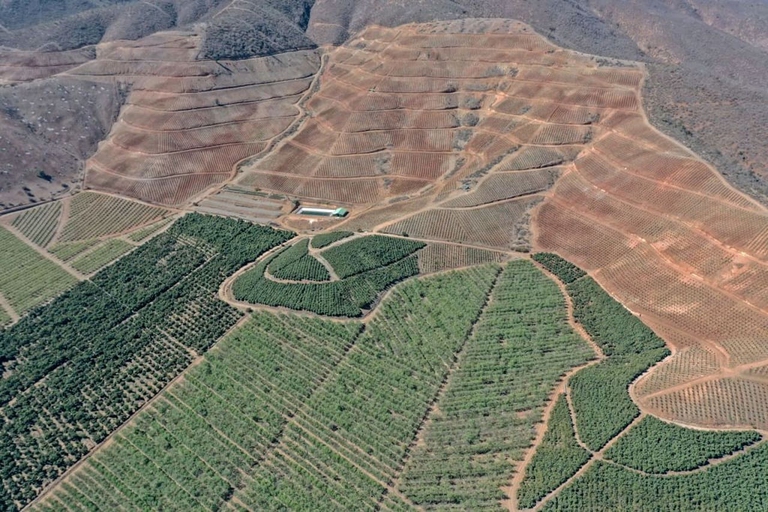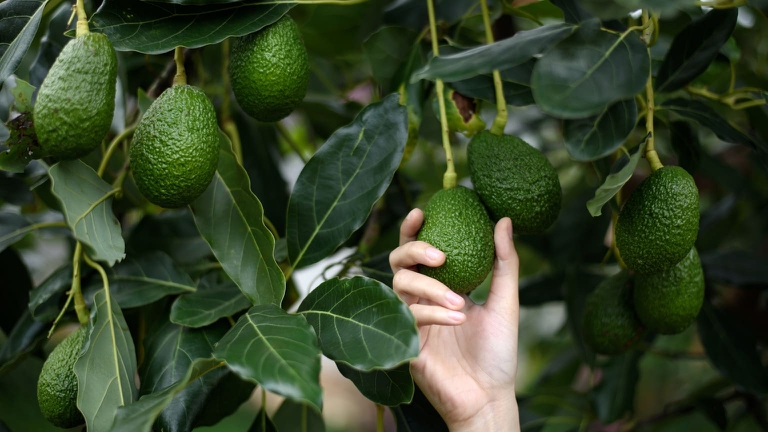https://www.lifegate.it/produzione-avocado-sostenibilita-coltivazione-impatto-trasporto
- |
- Thanks to its properties and versatility, avocado has become a trendy food from the United States to the European Union.
- It is expected to become the most commercialized exotic fruit in the next decade, but its production often hides unsustainable environmental and social prices.
- For this reason, the purchasing choice must be increasingly oriented towards certified, organic and short-chain avocados.
From the Mexico, the country in which it originates and where the greatest production takes place, theavocado in recent decades it has conquered the whole world, Italy included.In 2018, with the inclusion of this exotic fruit in the Istat basket, its habitual and consolidated purchase by Italians. His global success is thanks to his buttery consistency and dehis delicate flavour which make it a versatile ingredient in many recipes, but it is also the result of the diffusion of trendy dishes (and very "instagrammable") which see him as the protagonist - like theavocado toast and poke -, as well as the numerous operations of marketing who exalted him as superfoods.

The properties of avocado
Oval shape, green skin that turns black as it ripens, soft yellow/green pulp and a large spherical stone, the avocado it is rich in antioxidants and of monounsaturated fatty acids friends of the cardiovascular system and, according to some studies, helps to keep the cardiovascular system under control bad LDL cholesterol.It also has energizing and hydrating properties;contains vitamins B, C and E and good quantities of mineral salts, in particular potassium, phosphorus and magnesium.There are several variety, but the most widespread is the Hass:with a black and wrinkled skin, it is a hybrid that was accidentally developed by Rudolph Hass in the 1930s and which became the best-selling in the world thanks to its resistance to cold, handling, transport and storage.Then there is the variety Strong, with a greener and smoother skin, Bacon, Reed and Pinkerton, just to give a few examples.
Avocado production and import:the countries involved
The largest avocado producer in the world is Mexico which holds approximately the 40 percent of world production;according to 2021 data, they follow in the top ten producers Colombia, Peru, Indonesia, Dominican Republic, Kenya, Brazil, Haiti, Vietnam And Chile.The major importers of this fruit are the United States – on average an American consumes around 3.5 kg of avocado per year compared to 400 g of an Italian – who purchase the fruit from Mexico and the Dominican Republic, followed by the European Union which imports mainly from Colombia, Peru and Chile.The US and EU together import 70 percent of the world's avocado production.

According to what was reported byOECD-FAO agricultural outlook 2023-2032, the avocado is the tropical fruit that has recorded the faster expansion in production in recent decades:this trend will continue in the coming years until reaching, in 2032, a 12 million tons per year of avocados produced, triple the quantities produced compared to 2010.By 2032 the avocado will become the most commercialized tropical fruit surpassing bananas and pineapples in terms of quantity.According to some estimates, the global market value of this fruit will go from 14 billion dollars of 2021 ai 30 billion in 2032.
Deforestation, water consumption and pesticides:when avocado production is not sustainable
In Mexico avocado is called green gold for the huge profits generated by the productions, but the highest price is the one paid by the environment.Intensive cultivation is responsible, in Mexico and beyond, for a massive deforestation, of a huge exploitation of water resources, of a fort pollution caused by chemicals used in plantations.Furthermore, the Mexican avocado supply chain is controlled by the organized crime who extorts money from small producers and imposes the law in the fields:it is not uncommon for the army or private soldiers to intervene to protect the plantations.

Many of these aspects are described in a recent report by Grain, an international non-profit organization supporting small farmers and biodiversity. Only in the state of Michoacan, where 75 percent of Mexican production is concentrated, between 2000 and 2020, the area cultivated with avocados more than doubled, going from 78 thousand to 170 thousand hectares.And, per year, 450 thousand liters of insecticides, 900 thousand tons of fungicides and 30 thousand tons of fertilizers are used for the production of avocados.Ecosystems are destroyed, endangering the survival of various species, among all the monarch butterfly.

Every hectare of avocado in Mexico consumes 100 thousand liters of water per month.According to the Water footprint network, to produce a kilo of avocado they serve approx two thousand liters of water: The availability of this resource is one of the main issues affecting the sustainability of avocado production.And it's a case in Chile, where avocado farmers have purchased all the available water to irrigate the plantations (which is privatized here) and also carry out illegal withdrawals:around the verdant avocado "oases", the civilian population is grappling with a dramatic shortage of water to drink and use for washing and cooking, while other farmers and breeders are unable to work.In Kenya, avocado plantations, often fenced with barbed wire, are putting animals at risk elephants and their habitat, hindering their free movement and search for food and water.

For Grain, the growers are not the ones who control the process and not even organized crime has this power.Both are alone gears of the industrial agri-food system and they contribute to the destruction in order to obtain a part of the profit (a part which in the case of small farmers remains negligible).Therefore it is necessary to study the supply chain as a whole.What the consumer can do is buy and ask transparent products, with sustainability and organic certifications in the hope of impacting the system and helping to change it.

The environmental impact of avocado transport
On the subject of avocado sustainability, there is then the question of emissions caused by transport from producing to importing countries.According to a study by the Federal Institute of Technology in Zurich carried out on behalf of the Wwf, transporting one kilo of Chilean avocado to Switzerland involves 0.6 kilos of CO2 by ship and 13 kilos of CO2 by plane.

As a result of climate changes and the tropicalization of the climate, however, more and more avocado production is developing in Europe, with the Spain which is the largest producer.Also In southern Italy, more and more tropical fruit is grown with a surface area that exceeded one thousand hectares:avocado grows in Sicily, Calabria, Puglia and Sardinia.A shorter supply chain can help reduce theecological footprint of avocado consumption, provided that tropical exploitation scenarios are not replicated and that crops are managed in a sustainable way, starting from cultivation practices organic farming that protect the soil and the biodiversity up to correct water management.
